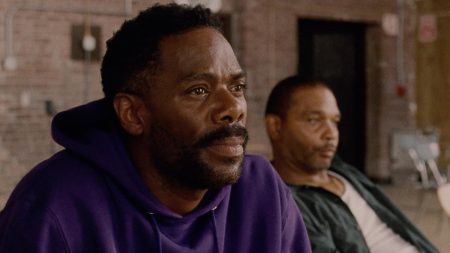The Power of a Name: Ayo Edebiri’s Pet Peeve and the Deeper Meaning Behind It
Names are more than just labels; they are identities, stories, and reflections of who we are. For Ayo Edebiri, a rising star known for her role in The Bear, the importance of a name goes beyond its aesthetic appeal. She has a unique name—one that carries a certain flair and a story. However, with that uniqueness comes a common frustration: the constant mis-spelling of her name by others. Edebiri has shared her exasperation with this issue, shedding light on a universal problem that many people with distinctive names can relate to. Her story is not just about a minor annoyance but about the deeper significance of respecting someone’s name and the care that goes into it.
The Frustration of Mis-spelling and the Clarity of an Email Signature
Imagine receiving an email from someone, only to notice that they’ve butchered the spelling of your name. For Ayo Edebiri, this is an all-too-common experience. She has expressed her frustration over the fact that despite having her name clearly spelled out in her email signature—with “two ‘E’s and two ‘I’s,” as she emphasizes—people still manage to get it wrong. “I hate when people write a message to me or send an email to me, or send an email to anybody, and they spell your name wrong in the email or in the message,” she laments. It’s a mistake that feels avoidable, especially when the correct spelling is right there for everyone to see. Edebiri’s irritation isn’t just about vanity; it’s about the lack of attention to detail and the carelessness that comes with it.
A Commitment to Getting It Right: Ayo’s Dedication to Names
While Edebiri is vocal about her frustration with mis-spelling, she is equally passionate about getting other people’s names right. She describes herself as “very tuned into how people pronounce their names” and admits that she will go the extra mile to ensure she gets it right. “I’ll bug people until I get it right,” she says, showcasing a level of dedication that speaks volumes about her character. For Edebiri, respecting someone’s name is not just a matter of politeness; it’s a sign of respect and acknowledgment of their identity. This commitment highlights her thoughtfulness and her appreciation for the significance of a name.
The Broader Implications of Mis-spelling: A Matter of Respect and Care
Edebiri’s experience with her name being mis-spelled is not unique. Many people with names that are unfamiliar to the majority—whether due to cultural reasons, linguistic differences, or sheer uniqueness—face the same struggle. What makes Edebiri’s perspective particularly compelling is her ability to articulate the emotional impact of this seemingly minor issue. When someone mis-spells her name, it feels like a missed opportunity to show care and attention. “That’s just so frustrating to me,” she confesses, her words echoing the feelings of countless others who have been in her shoes. Mis-spelling a name is not just a harmless error; it can feel like a dismissal of the person’s identity.
Ayo Edebiri’s Perspective: A Name Is More Than Letters on a Screen
Edebiri’s frustration over mis-spelling is tied to her deep appreciation for the stories and meanings behind names. For her, a name is not just a collection of letters; it’s a reflection of someone’s heritage, family, and individuality. Her own name, Ayo Edebiri, carries a certain cultural and personal significance that she cherishes. When people take the time to get it right, it feels like a small act of kindness and respect. Conversely, when they get it wrong, it can feel like a failure to see her fully. This perspective underscores the importance of names as more than just labels—they are gateways to understanding who someone is.
Closing Thoughts: The Lesson in Ayo’s Experience
Ayo Edebiri’s experience with her name being mis-spelled is a reminder of the small but meaningful ways we can show respect and care for one another. In an era where communication is often rushed and digital, the simple act of getting someone’s name right can make a world of difference. Edebiri’s story is not just about her own frustration; it’s about the importance of paying attention to the details that matter to others. By speaking up about her experience, she invites us all to think more deeply about the power of a name—and the care we should bring to how we use it.















